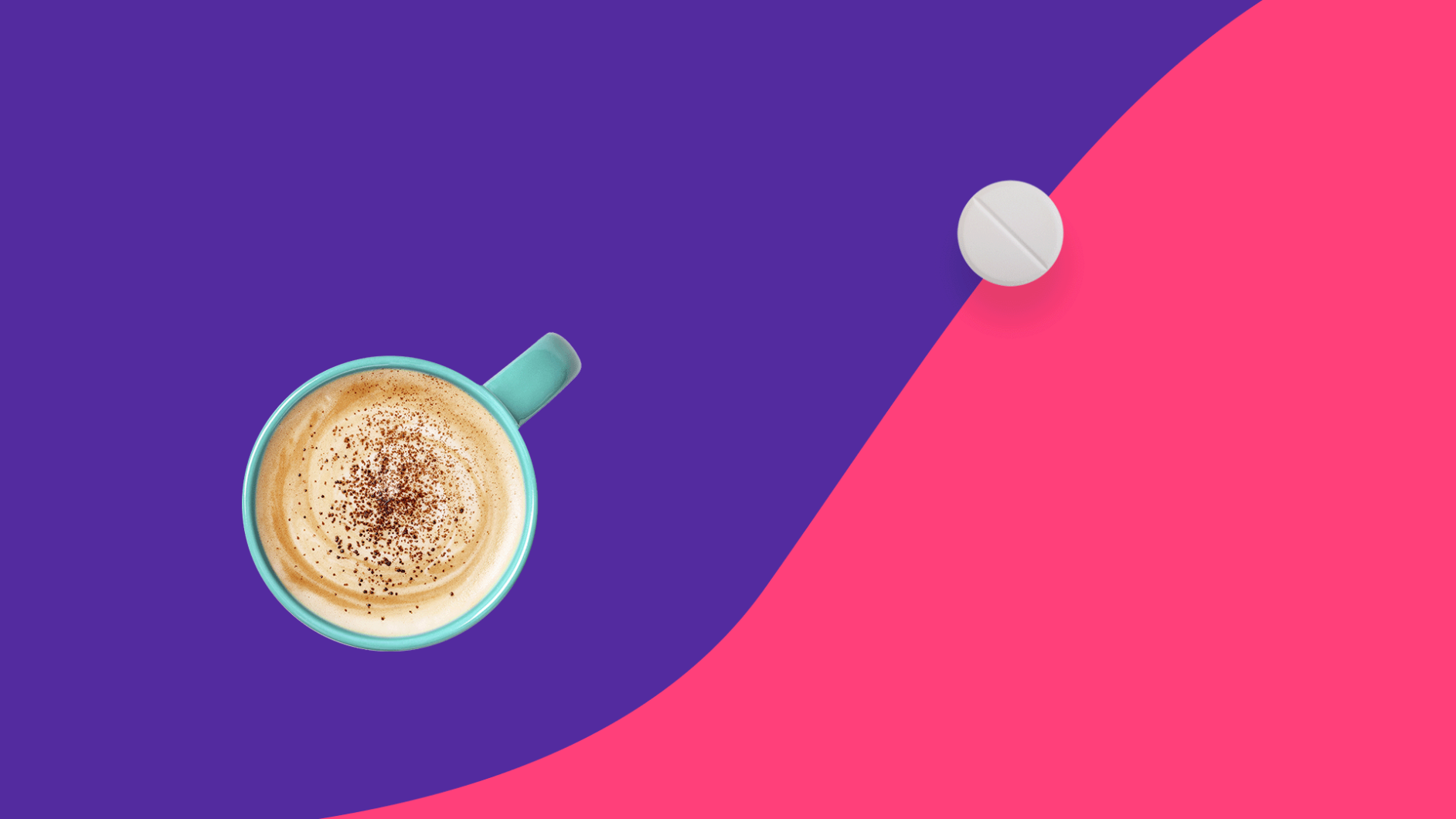Key takeaways
Mixing Wellbutrin and caffeine is advised against due to the potential for increased Wellbutrin levels in the body, leading to toxicity and seizures.
Combining Wellbutrin with caffeine can exacerbate symptoms of anxiety and depression and may worsen sleep difficulties.
Wellbutrin affects neurotransmitters differently than most antidepressants, and not all antidepressants interact with caffeine as Wellbutrin does.
Best practices for taking Wellbutrin include consulting a healthcare provider before mixing it with other substances and avoiding caffeine to reduce the risk of adverse effects.
Wellbutrin (bupropion) is a prescription antidepressant medication. Though most commonly prescribed to treat depression, it is sometimes prescribed off-label for attention-deficit/hyperactivity disorder (ADHD) or (the 12-hour extended-release form) smoking cessation.
If you or someone you know is taking Wellbutrin, the underlying condition—depression or ADHD —might already cause sleep problems. On top of that, research from Neuropsychopharmacology also shows that Wellbutrin has stimulant properties (though it does not contain actual caffeine), which could cause or exacerbate sleep disturbances.
When you wake up to take your daily dose of Wellbutrin and need an extra jolt of energy after a poor night’s sleep, you might wonder: Does caffeine affect Wellbutrin? Is it safe to mix Wellbutrin and caffeine?
Can you drink coffee with Wellbutrin?
It is best to avoid mixing Wellbutrin and caffeine, says Sid Khurana, MD, a board-certified psychiatrist and medical director of outpatient services at Nevada Mental Health in Las Vegas.
Here’s why:
- It could lead to toxicity. High doses of caffeine can increase the level of Wellbutrin in the body, raising the risk of toxicity and seizures, according to Dr. Khurana. It can also cause irritability, tremor, and increased blood pressure.
- It could worsen symptoms of anxiety and depression. Both caffeine and Wellbutrin have stimulant effects, so combining them could worsen symptoms of anxiety and depression, such as over-alertness, jitteriness, or trouble sleeping.
- It could cause sleep difficulties. “[Wellbutrin] also has a side effect of insomnia,” Dr. Khurana says. If depression or ADHD has already made sleep difficult, adding Wellbutrin and caffeine could further damage your ability to rest.
It is important to know the signs of Wellbutrin toxicity (overdose), especially if you or someone you know takes Wellbutrin. These warning signs include:
- Seizures
- Tachycardia (fast heart rate)
- Agitation
- Arrhythmia (irregular heartbeat)
- Cardiogenic shock (indicated by shortness of breath, weak pulse, pale or clammy skin, and loss of consciousness)
Does caffeine interact with other depression medications?
Those unwilling to give up their daily caffeine jolt might wonder if switching to another medication could help. The answer depends on why your healthcare provider prescribed Wellbutrin in the first place. Wellbutrin, and its generic, bupropion, is part of a class of drugs called antidepressants. It is also sometimes prescribed off-label for ADHD or smoking cessation.
Not all antidepressants work the same way. Most antidepressants boost serotonin, while Wellbutrin works by boosting other neurotransmitters, namely norepinephrine and dopamine. Likewise, not all antidepressants have the same interaction as caffeine and Wellbutrin. An example of an antidepressant with no known interactions with caffeine is Zoloft (sertraline). Both Wellbutrin and Zoloft are prescription antidepressants, so you must consult a healthcare provider and get a prescription to switch to a similar drug that has no interaction with caffeine.
How caffeine affects the body
Caffeine is a stimulant, which means it increases alertness and combats sleepiness. While extra energy might sound like a good thing, caffeine’s stimulatory effects can also increase blood pressure, adrenaline, and feelings of anxiety or panic—especially if you consume too much, says Jamie Lee McIntyre, RDN, a clinician and nutrition communications consultant in based in Florida.
McIntyre says caffeine’s stimulatory effects can contribute to many symptoms, including:
- Increased heart rate
- Increased blood pressure
- Dehydration
- Sleep disturbances
- Digestive issues
- Headaches
- Dependence
Of course, caffeine tolerance varies from person to person. McIntyre says people with anxiety disorders can be especially sensitive to stimulants, even experiencing worse symptoms after just a small amount of caffeine.
“It’s important for individuals with depression or anxiety to be mindful of their caffeine intake and to talk to their healthcare provider about whether caffeine consumption is appropriate for them,” McIntyre says.
Best practices for taking Wellbutrin
First things first: Wellbutrin must be prescribed by a healthcare professional. Never start or stop taking it or adjust the dose without consulting your healthcare provider.
Always consult a provider before taking other drugs, vitamins, or supplements with Wellbutrin, as interactions can be severe, says Dr. Khurana. “There are many medications that Wellbutrin should not be taken with,” he says. “Antibiotics like linezolid are contraindicated. Street drugs like Ecstasy can be dangerous, and so can complementary medications like St. John’s Wort.” It is also best to consult a healthcare provider before consuming alcohol while taking Wellbutrin.
Avoid caffeine in coffee, tea, and energy drinks while taking Wellbutrin. McIntyre suggests replacing your morning jolt with herbal tea or even decaf coffee for the same taste without the stimulating effects. She also suggests planning for seven to nine hours of sleep each night to maintain steady energy levels throughout the day.
“It is best to take this medicine in the morning,” adds Dr. Khurana. While Wellbutrin can be taken with or without food, he says patients with sensitive stomachs can reduce the risk of nausea by taking it immediately after eating.
And if you’re not cutting caffeine out completely, just remember this medication should never be taken with or immediately after coffee, as this could heighten the drug’s effects.
- Bupropion reduces methamphetamine-induced subjective effects and cue-induced craving, Neuropsychopharmacology (2006)
- Wellbutrin XL, PDR
- Wellbutrin, FDA
- Bupropion toxicity, StatPearls (2022)
- 15 years of clinical experience with bupropion HCl: From bupropion to bupropion SR to bupropion XL, The Primary Care Companion to the Journal of Clinical Psychiatry (2015)
- Caffeine, StatPearls (2024)
- Bupropion (oral route), Mayo Clinic



